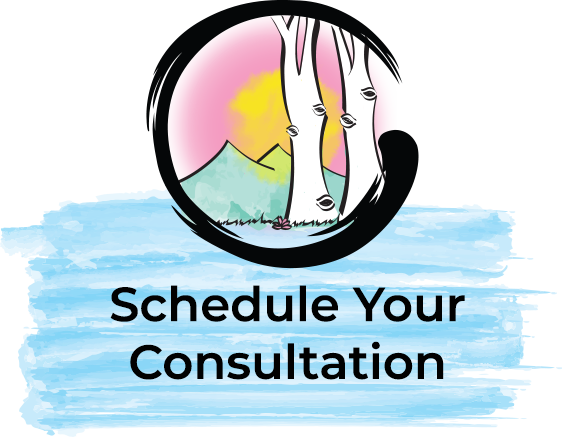By - August 7, 2023
Categories: General
Living with Attention Deficit Hyperactivity Disorder (ADHD) can be challenging. From struggling to focus on tasks to battling impulsive behaviors, individuals with ADHD often seek alternative approaches to manage their symptoms. Traditional Chinese Medicine (TCM) offers holistic and natural options for ADHD treatment.
Symptoms of ADHD
It’s not uncommon for adult sufferers of ADHD to have anxiety or depression as well, which can make it hard to identify. Some common symptoms include:
- Trouble focusing on tasks or multitasking
- Poor concentration
- Impulsive behavior
- Disorganization
- Poor time management skills
- Restlessness and sleep problems
- Easily frustrated
- Frequent mood swings
- Difficulty articulating thoughts to others
- Difficulty coping with stress
Traditional Chinese Medicine
If you’ve read my blog before, you know that Traditional Chinese Medicine is an ancient medical system that has been around for thousands of years, focused on achieving balance between the body, mind, and environment. In Traditional Chinese Medicine, ADHD is seen as an imbalance of the Heart-Mind. Traditional Chinese Medicine aims to restore harmony by the clearing of heat and/or wind in the head, relief of liver Qi stagnation, and tonification of the spleen and kidneys.
Acupuncture
Ah acupuncture! If you’re reading this, I’m sure you’ve heard of this practice where fine needles are inserted into specific points on the body. By stimulating specific points on the body, acupuncture can improve the flow of Qi, restoring balance to the body. Acupuncture can help patients to manage ADHD symptoms such as hyperactivity, impulsivity, and inattention, as well as improve relaxation and overall well-being.
Herbal Medicine
Traditional Chinese Medicine utilizes plants, roots, and minerals to restore balance and address specific health conditions. In the context of ADHD, Traditional Chinese Medicine practitioners may prescribe customized herbal formulas. These herbal concoctions aim to nourish the nervous system, support cognitive function, and promote overall well-being. Some herbs your practitioner might recommend include:
- Ginkgo Biloba – used to improve memory, focus, and overall cognitive function
- Poria – A fungus frequently used to calm the mind and soothe irritability
- Schisandra Berry – an adaptogen which helps the body adapt to stress and maintain balance. Often used to support the nervous system, enhance focus, and reduce restlessness and impulsivity
- Polygala Root – used to treat symptoms such as forgetfulness, distractibility, and mental fatigue
- Longan Fruit – often used to support the heart and calm the spirit.
Lifestyle and Dietary Recommendations
In Traditional Chinese Medicine, food is believed to have energetic properties that can influence the body’s balance. Individuals with ADHD may benefit from reducing processed foods, sugar, and caffeine, while increasing their intake of whole foods. Calming foods like chamomile tea and omega-3 fatty acids have also been proven to support focus and attention.
In addition to dietary recommendations, your Traditional Chinese Medicine practitioner may recommend some lifestyle changes. Practices like Qi Gong and Tai Chi, with their gentle movements, breathing exercises, and meditation, can reduce stress, improve concentration, and enhance overall energy flow. Prioritizing sleep, regular exercise, and incorporating stress management techniques such as mindfulness and relaxation exercises are all part of the Traditional Chinese Medicine approach.
Coming very soon to Altitude Acupuncture is NAET (Nambudripad’s Allergy Elimination Technique) – How can this help with ADHD?
As we know, the causes of ADHD are not fully understood, but they are believed to involve a combination of genetic, neurological, and environmental factors. In addition, ADHD symptoms can be linked to food sensitivities or allergies. People with ADHD might not be absorbing vitamin B12 or calcium like they should and NAET can address and help facilitate the correction to these imbalances. Here soon, we will be able to muscle test and use NAET in the clinic. Want to know more? Don’t hesitate to reach out to us!
Remember that Traditional Chinese Medicine should not replace conventional treatments or medications prescribed by healthcare professionals. Think of Traditional Chinese Medicine as a complement to existing treatment – a holistic approach that takes into account your overall well-being. It’s also important to seek guidance from a qualified Traditional Chinese Medicine practitioner who can provide personalized treatment plans tailored to your specific needs. Everyone’s experience with ADHD is unique, and a comprehensive approach that combines conventional and alternative therapies may be the key to managing symptoms and improving your overall well-being.
Be well.
___
This information is for educational purposes only and is not intended to diagnose, treat or cure any disease or illness. Please consult your healthcare provider prior to the use of this product if you are pregnant, nursing, taking medications or have a medical condition. Individual results may vary.
